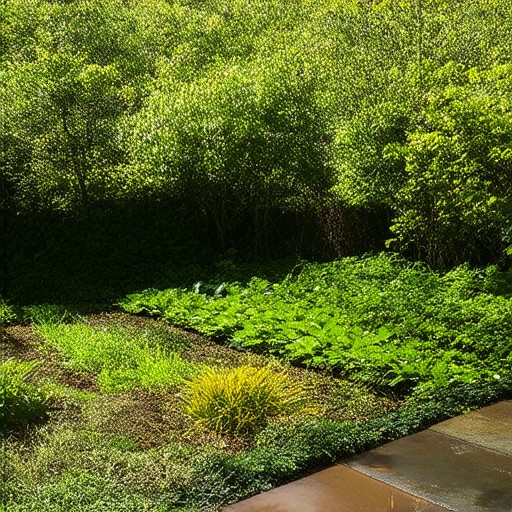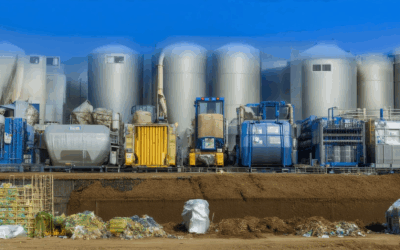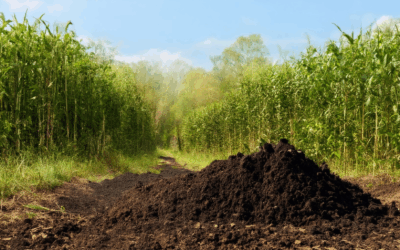Gardening is a rewarding hobby that brings beauty to your home and fresh produce to your table, but it also generates a significant amount of waste. From pruning trees and trimming hedges to removing fallen leaves and decaying plant material, garden waste can quickly pile up and become a burden on both your property and the environment. While disposing of garden waste may seem like a straightforward task, doing so responsibly and sustainably requires careful consideration. In today’s eco-conscious world, many homeowners and gardeners are seeking cost-effective, eco-friendly solutions to manage their garden waste without harming the planet. Whether you’re looking to reduce your carbon footprint or simply want to make better use of your resources, sustainable garden waste solutions offer a practical and environmentally friendly approach to managing your garden debris. By exploring methods such as composting, DIY waste disposal systems, and eco-friendly practices, you can transform your garden waste into a valuable resource rather than a waste product. In this guide, we’ll delve into the cheapest and most sustainable ways to dispose of garden waste, while also providing actionable tips for reducing landfill dependency and promoting a greener lifestyle.
Key Takeaways
– Boost Composting Efficiency: Improve decomposition with proper aeration and layering to create an ideal environment for microorganisms.
– Simplify Garden Waste Disposal: Use eco-friendly compost tumbler bins or DIY solutions to transform organic waste into nutrient-rich compost.
– Accelerate Decay: Incorporate compost accelerators like coffee grounds to speed up the breakdown process.
– Optimize Moisture Levels: Keep your compost damp but not soggy to prevent mold and encourage faster decomposition.
– Avoid Overload: Balance green and brown materials to avoid slow breakdown and unpleasant odors.
– Monitor for Success: Regularly check and adjust your compost pile to ensure optimal conditions and quick breakdown.
These tips provide a cost-effective and sustainable way to manage garden waste while enriching your soil.

Cheapest Ways to Get Rid of Garden Waste
Removing garden waste effectively and affordably requires considering several eco-friendly and cost-saving methods:
- Composting: Start a compost pile using organic materials like kitchen scraps, yard clippings, and vegetable peelings. This not only helps dispose of waste but also enriches your soil with nutrients.
- Mulching: Turn unwanted branches and twigs into mulch using a chipper or grinder. Spread the mulch around your garden to suppress weeds and retain moisture, reducing the need for costly chemical treatments.
- Local Disposal Options: Check with your local waste management services for free or low-cost disposal days. Many municipalities offer these to promote recycling and reduce landfill waste.
- Community Clean-Up Events: Participate in neighborhood or town-wide clean-up initiatives where you can dispose of large amounts of garden waste at minimal or no cost.
By combining these methods, you can efficiently and affordably manage your garden waste while promoting environmental sustainability.
How to Remove Large Amounts of Garden Waste
To effectively manage large volumes of garden waste, consider the following organized approach:
- Hiring a Skip Service
Engage a reputable waste removal company to hire a skip. This is a practical solution for significant amounts of waste, offering convenience and reliability. - Composting
Compost large quantities of organic waste, which not only manages garden waste but also enriches your soil. While it may take time, it’s an eco-friendly method. - Waste Disposal Services
Utilize professional services that specialize in garden waste collection. These services can efficiently handle large volumes and often provide timely solutions. - DIY Solutions
Rent a dumpster for temporary storage of garden waste. Check local rental companies for skips tailored to your needs, ensuring proper disposal through authorized channels. - Pyrolysis
Explore pyrolysis systems to convert organic waste into biochar, a valuable soil amendment. Research local availability and costs for setting up such systems.
Always verify local regulations regarding waste disposal to comply with environmental standards. Consulting with local councils or waste management experts can provide tailored guidance. By choosing the best method for your situation, you contribute positively to environmental protection.

Most Environmentally Friendly Method of Waste Disposal
The most environmentally friendly method of waste disposal depends on several factors, including local infrastructure, availability of resources, and the type of waste generated. Here’s a breakdown of the most sustainable options:
- Recycling : Recycling is one of the most widely adopted methods due to its ability to reduce waste sent to landfills and conserve resources. However, the environmental impact varies based on the efficiency of recycling processes and the types of materials recycled.
- Composting : Composting is highly sustainable, converting organic waste into nutrient-rich soil amendments. It reduces landfill use and supports sustainable agriculture, though its effectiveness can depend on local composting programs and regulations.
- Pyrolysis : Pyrolysis is a cutting-edge process that converts waste into biochar, a carbon-rich material beneficial for soil health. While effective, it requires specific conditions and may be costly to implement on a large scale.
- Anaerobic Digestion : This method breaks down organic waste using bacteria to produce biogas, a renewable energy source. It’s efficient but may require substantial infrastructure investments.
- Waste-to-Energy Plants : These facilities convert waste into electricity, though they can produce emissions. Their availability and effectiveness vary by region.
- Chemical Waste Management : Proper treatment of hazardous waste is essential but often requires specialized handling and disposal methods.
To maximize environmental benefit, a combination of these methods, such as recycling and composting, along with advanced techniques like pyrolysis and anaerobic digestion, can create a holistic waste management system. Tailoring these approaches to local contexts ensures the most sustainable solution for waste disposal.

How to Break Down Garden Waste Quickly with DIY Methods
Breaking down garden waste efficiently can transform organic materials into nutrient-rich compost, enriching your soil and promoting sustainable gardening practices. Below are eight effective DIY methods to accelerate the decomposition process:
- Aerate Your Compost Pile : Proper aeration is key to quick breakdown. Use a pitchfork to aerate the pile, allowing oxygen to circulate through the materials. Regular turning helps distribute heat and moisture evenly.
- Use a Compost Tumbler : A tumbling bin with built-in airflow promotes continuous mixing and faster decomposition. This method allows for controlled aeration and easy access to the materials.
- Add Compost Accelerators : Incorporate natural accelerators like coffee grounds, citrus peels, or manure to speed up the process. These ingredients boost microbial activity and break down waste more rapidly.
- Layer Materials Strategically : Mix green and brown materials together. Layering ensures a balanced environment for microbes, reducing odors and accelerating breakdown. Include carbon-rich materials like leaves and wood chips alongside nitrogen-rich scraps like grass clippings.
- Utilize a Bins with Air Holes : Set up a simple bin with drainage holes at the bottom. Place it in a shaded area to regulate temperature and moisture levels, encouraging faster decomposition without attracting pests.
- Moisturize Sparingly : Add water to keep the pile damp but not soggy. Overwatering can slow decomposition and lead to mold growth. Aim for a texture similar to damp newspaper.
- Avoid Common Pitfalls : Steer clear of overloading the pile with only kitchen scraps, as this can lead to slow breakdown. Maintain a ratio of green and brown materials for optimal conditions. Prevent smells by ensuring airflow and avoiding overly wet piles.
- Monitor and Adjust : Regularly inspect the pile for signs of breakdown. If it smells off, aerate it further. Adjust the pile size to match your needs, breaking it down smaller for quicker processing.
Eggshells Composting Color Change
When composting eggshells, they typically start off as brown and may turn green during the decomposition process. This color transition occurs due to the breakdown of proteins and other organic matter by microorganisms. The natural decay process can lead to variations in hue, with green appearing as a stage in the composting cycle.

How to Shred Green Garden Waste
To efficiently shred green garden waste, follow these organized steps for optimal results:
- Prepare the Shredder : Ensure your garden shredder is ready by clearing any blockages and checking for proper functioning. This prevents clogs and ensures smooth operation.
- Dry the Waste : Remove moisture from grass clippings and leaves before shredding. Wet material can cause the shredder to work harder and may lead to mold growth.
- Feed the Material Slowly : Take your time when loading the waste. Pushing too quickly can create jams or uneven particle sizes.
- Avoid Certain Materials : Refrain from shredding hard materials like rocks, bones, or thick branches, as they can damage the machine and leave coarse residues.
- Shred Twice for Fineness : If the initial pass isn’t fine enough, run the material through the shredder again. This ensures a finer mulch suitable for composting.
- Clean After Use : After each session, clean the shredder by reversing the blades and shaking off any residue. This maintains efficiency and extends the equipment’s lifespan.
- Consider Alternative Methods : For particularly tough waste, try using a chainsaw or axe to chop larger pieces before feeding them into the shredder.
By following these tips, you can effectively transform your green garden waste into useful mulch, promoting sustainability and enhancing your garden’s health. Explore more gardening tips and tools on our Gardening Tips page to take your eco-friendly efforts to the next level.




0 Comments